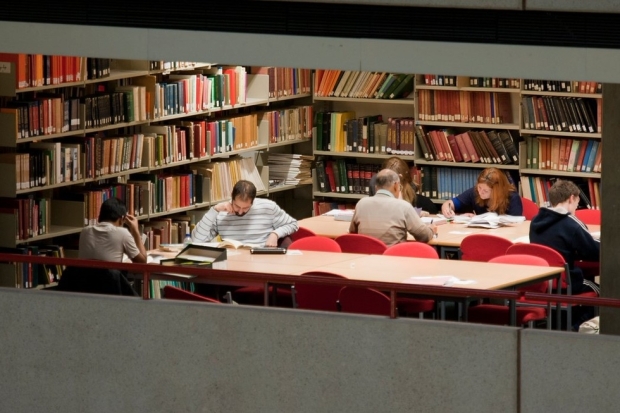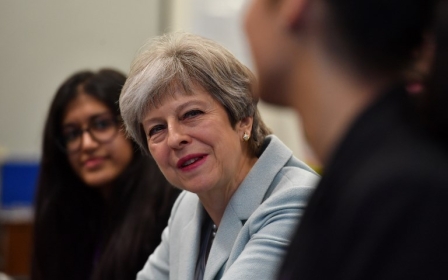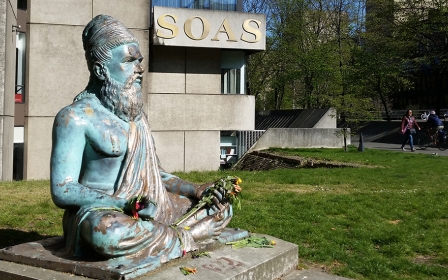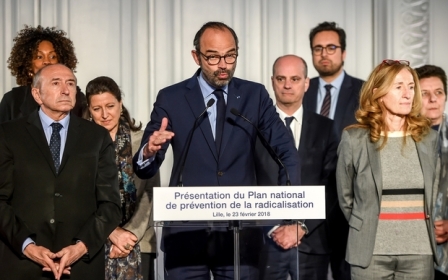Policing Muslims, policing dissent: Free speech is under attack at Westminster University
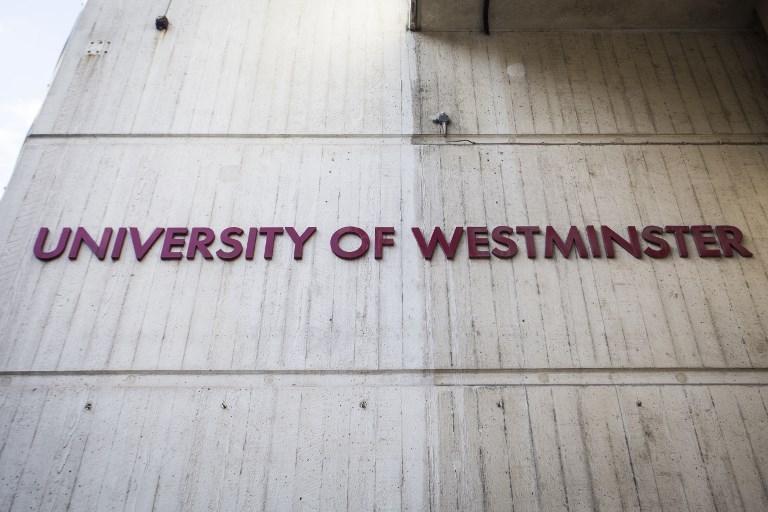
Last week, Farah Koutteineh, a student at the University of Westminster, faced disciplinary action at the hands of the institution’s management. Two rather vague accusations have been levelled at Koutteineh: being the organiser of the local Students Not Suspects campaign and targeting a member of staff. It is not entirely clear why either of these are grounds for such drastic measures.
Indeed, Koutteineh has been involved, alongside numerous other students, in a growing campaign opposing the implementation of Prevent "counter-extremism" policies at Westminster. A fact that should be celebrated, and certainly not lead to her being disciplined.
A repressive implementation
In many ways, Westminster has been at the forefront of some of the most far-reaching and repressive implementation in the sector. It has imposed both cameras and card readers on the prayer rooms, has increased the limitations imposed on public meetings organised by staff and students, and moved to cancel events that it deemed "at risk".
In addition to this, the university management has moved to "de-Islamify" the prayer space, despite it being used overwhelmingly by Muslim students. This decision led to the announcement that Qurans could no longer be stored in the prayer room (despite their obvious importance in the very act described in the room's title).
This situation is a powerful reminder of how Prevent functions on campuses. It targets Muslim students, criminalises their religious practice, and legalises the application of grossly Islamophobic practices
When students refused to comply with the new rule and denounced it as a further targeting of Muslims on campus, the Qurans were removed and disposed of. This move was further supported by the university's chaplain and multi-faith adviser, Yusuf Kaplan, who was severely criticised by the campaign.
It therefore appears that Koutteineh is being singled out for opposing a growing wave of Islamophobic policies at Westminster, and for calling out not simply a member of staff, but a university official involved in the implementation of the very strategy she - and many others - are opposing.
In a nutshell, Westminster is disciplining a student involved in campaigning against Prevent, because she campaigned against Prevent. When asked for comment, Koutteineh explained: "Instead of acknowledging the reasons why our movement collectively acted, they have discriminately singled out one individual from a collective campaign of many, who so happens to be the president of the Palestine society."
Political and media hysteria
This situation is a powerful reminder of how Prevent functions on campuses. It targets Muslim students, criminalises their religious practice, and legalises the application of grossly Islamophobic practices. In addition to this, this curtailing of civil liberties is facilitated through the political and media hysteria drummed up about Muslims.
Koutteineh expresses similar feelings when she said: "The disciplinary sanctioned against only me just repeatedly displays how freedom of speech and freedom of expression on Westminster campuses is exclusive to students who are not Muslim, who are not people of colour and who are not supportive of Palestine."
When asked for comment, the University of Westminster replied with the following: "The University of Westminster fully supports all our students' rights to make their voices heard through meetings, talks or peaceful protest, and is committed to upholding freedom of speech, as outlined in our code of practice. As a community, we encourage open debate and engagement.
"The university also condemns the baseless public harassment of any members of our community. Given behaviour to this effect, the university has begun disciplinary proceedings with a student.
"Our interfaith team provide hospitality, non-judgemental support, pastoral care and spiritual counsel in times of ease or crisis. The advisers specialise in giving appropriate guidance through conversation or contemplation. Advisers can also offer guidance to staff on varying faith-related issues but do not have voting or veto rights on speakers or university security issues."
Campus policing
In an era in which students are increasingly told that "free speech" is under attack from progressive students who refuse to engage with reactionary figures in their institutions of learning, or decide to boycott those complicit with the ongoing oppression and expropriation of the Palestinian people, one would be forgiven to wonder why not more is being said about the dangerous clamping down on academic, political and religious freedom taking place on our campuses under the guise of Prevent and fighting so-called non-violent extremism and radicalisation.
In fact, it is worth pointing out what is happening here. The students at Westminster have operated openly, democratically and encouraged debate. They have organised events and demonstrations, written to management and called for engagement with the Westminster community, and have done everything in their power to pull in academics and students alike.
In fact, the petition in support of Koutteineh, which has garnered over 250 signatures from students and academics in solidarity with Koutteineh, is a powerful testimony to the effectiveness of their efforts.
On the other hand, the university management and Prevent policy is doing exactly the opposite. It has worked to curtail the ability of students to organise meetings and even moved to shut them down completely.
It has increased surveillance and policing of religious and political activity on campus. And it is now attempting to discipline a student activist in order to scare away those who are organising to oppose this attack on civil liberties on their campus.
Free speech is under attack at Westminster. And Koutteineh's disciplinary is just another episode in this ongoing assault.
The petition in support of Farah Koutteineh can be found and signed here: https://goo.gl/MFgip3
- Malia Bouattia is an activist, the former president of the National Union of Students, co-founder of the Students not Suspects/Educators not Informants Network and presenter/panellist on British Muslim TV's Women Like Us.
The views expressed in this article belong to the author and do not necessarily reflect the editorial policy of Middle East Eye.
Photo: A University of Westminster sign at its Cavendish campus (AFP)
New MEE newsletter: Jerusalem Dispatch
Sign up to get the latest insights and analysis on Israel-Palestine, alongside Turkey Unpacked and other MEE newsletters
Middle East Eye delivers independent and unrivalled coverage and analysis of the Middle East, North Africa and beyond. To learn more about republishing this content and the associated fees, please fill out this form. More about MEE can be found here.



